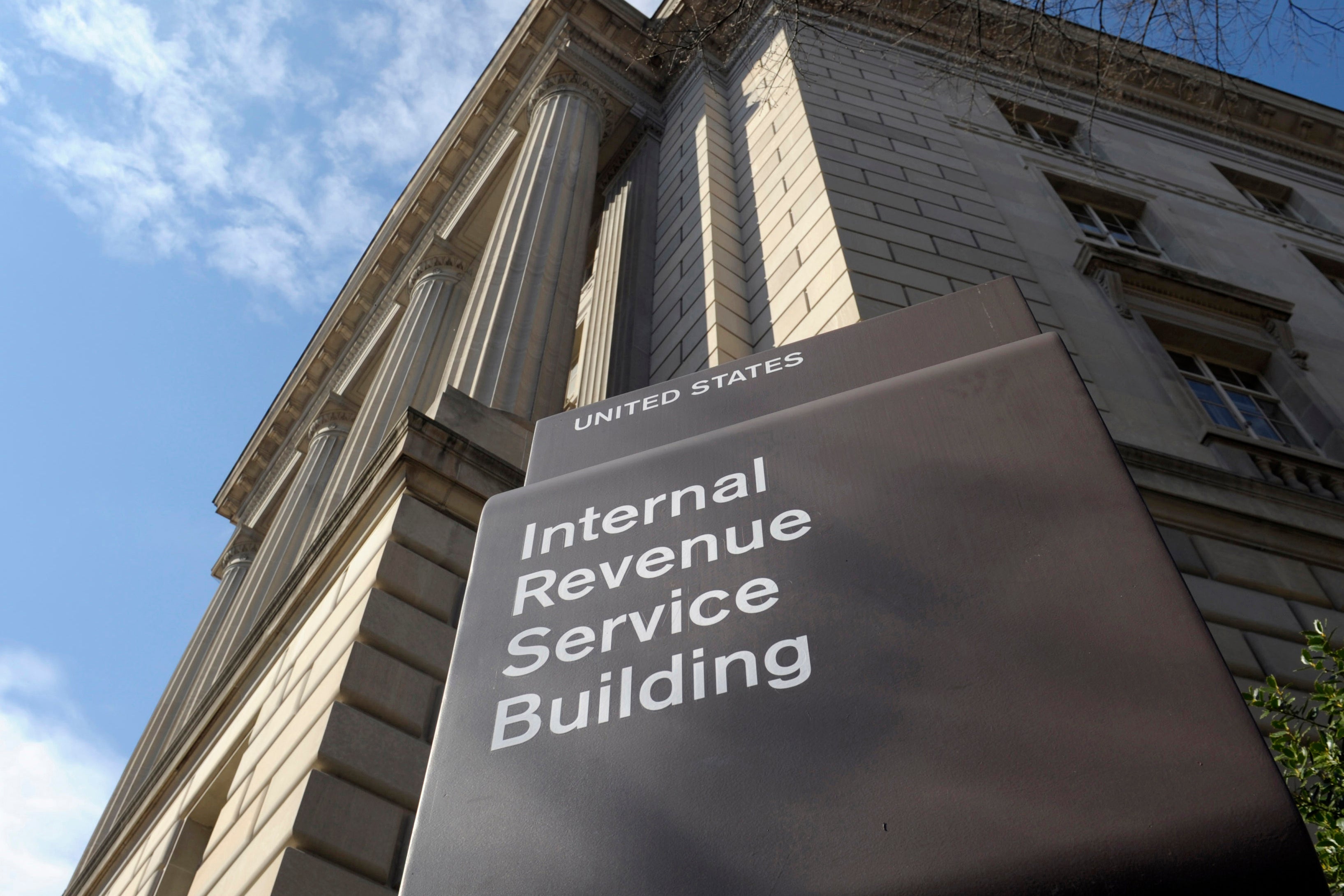The IRS is quicker to answer the phone on this Tax Day
Today is Tax Day and the IRS is promoting the customer service improvements the agency rolled out since receiving tens of billions in new funding dollars through Democrats’ Inflation Reduction Act

Your support helps us to tell the story
From reproductive rights to climate change to Big Tech, The Independent is on the ground when the story is developing. Whether it's investigating the financials of Elon Musk's pro-Trump PAC or producing our latest documentary, 'The A Word', which shines a light on the American women fighting for reproductive rights, we know how important it is to parse out the facts from the messaging.
At such a critical moment in US history, we need reporters on the ground. Your donation allows us to keep sending journalists to speak to both sides of the story.
The Independent is trusted by Americans across the entire political spectrum. And unlike many other quality news outlets, we choose not to lock Americans out of our reporting and analysis with paywalls. We believe quality journalism should be available to everyone, paid for by those who can afford it.
Your support makes all the difference.On this Tax Day, the IRS is promoting the customer service improvements the agency rolled out since receiving tens of billions in new funding dollars through Democrats' Inflation Reduction Act.
From cutting phone wait times to digitizing more documents and improving the “Where's My Refund” tool to show more account details in plain language, agency leadership is trying to bring attention to what's been done to repair the agency’s image as an outdated and maligned tax collector.
The promotion also in part is meant to quickly normalize a more efficient and effective IRS before congressional Republicans threaten another round of cuts to the agency. So time is of the essence for both taxpayers and the agency this season.
“This filing season, the IRS has built off past successes and reached new milestones,” Treasury Secretary Janet Yellen said on a Friday call with reporters. “It’s showing that when it has the resources it needs, it will provide taxpayers the service they deserve.”
“Delivering tax season is a massive undertaking," said IRS Commissioner Daniel Werfel. “We greatly appreciate people in many different areas working long hours to serve taxpayers as the tax deadline approaches.”
For most people, April 15 is the last day to submit tax returns or to file an extension and the IRS says it has received more than 100 million tax returns, with tens of millions more expected to be filed.
The IRS says call wait times have been cut down to three minutes this tax season, compared with the average 28 minutes in 2022. That has saved taxpayers 1.4 million hours of hold time and the agency has answered 3 million more calls compared with the same time frame. Also, an updated “Where’s My Refund” tool giving more specific information about taxpayers’ refunds in plain language was rolled out to 31 million views online.
Werfel told The Associated Press earlier in the tax season that the agency's agenda is to deliver “better service for all Americans so that we can ease stress, frustration and make the tax filing process easier — and to increase scrutiny on complex filers where there’s risk of tax evasion."
“When we do that,” Werfel said, “not only do we make the tax system work better because it’s easier and more streamlined to meet your tax obligations. But also we collect more money for the U.S. Treasury and lower our deficit. The IRS is a good investment.”
Major new initiatives in recent months have included an aggressive pursuit of high-wealth earners who don’t pay their full tax obligations, such as people who improperly deduct personal flights on corporate jets and those who just don’t file at all.
This also is the first tax season that the IRS has rolled out a program called Direct File, the government’s free electronic tax return filing system available to taxpayers in 12 states who have simple W-2 forms and claim a standard deduction.
If Direct File is successful and scaled up for the general public’s use, the program could drastically change how Americans file their taxes and how much money they spend completing them. That is, if the agency can see the program through its development in spite of threats to its funding.
The Inflation Reduction Act initially included $80 billion for the IRS.
However, House Republicans have successfully clawed back some of the money. They built a $1.4 billion reduction to the IRS into the debt ceiling and budget cuts package passed by Congress last summer. A separate agreement will take an additional $20 billion from the IRS over the next two years to divert to other nondefense programs.
Government watchdogs warn IRS funding cuts will reduce the amount of revenues the U.S. collects.
The non-partisan Congressional Budget Office reported in February that a $5 billion rescission from the IRS would reduce revenues by $5.2 billion over the next 10 years and increase the cumulative deficit by $0.2 billion. A $20 billion rescission would reduce revenues by $44 billion and a $35 billion rescission would reduce revenues by $89 billion and increase the deficit by $54 billion.
___
See all of the AP’s tax season coverage at https://apnews.com/hub/personal-finance.